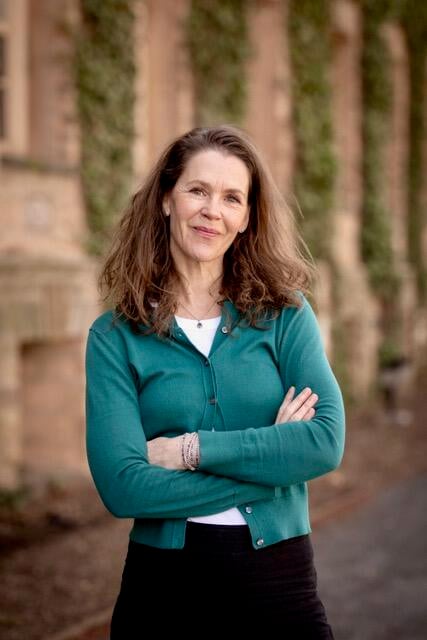You have /5 articles left.
Sign up for a free account or log in.
As a fellow social scientist, I’ve always felt a connection with Mona Fixdal, Princeton’s senior associate director for digital learning and design. Mona was trained as a political scientist and then made the alt-ac pivot into digital and online learning leadership. I wanted to learn more from Mona about her career path and current work, and she graciously agreed to answer my questions.

Q. Tell us about your role at Princeton. What are the big projects, services and initiatives that you lead and collaborate on?
A: I lead the digital learning and design team in the McGraw Center for Teaching and Learning. We provide faculty with tools and technology in support of their pedagogical goals. In some cases, that means we’re equipping faculty with a platform to communicate with their students on or share course materials through. In other cases, we collaborate extensively with faculty on how to use digital technology that promotes active learning strategies, developing collaborative asynchronous activities, producing carefully crafted videos for flipped learning, integrating gaming in their courses or making use of platforms for multimedia assignments. My group also manages Princeton’s online course initiative, which offers free, open courses on Coursera and edX.
This past year, we have thought a lot about how to provide better digital solutions for groups on campus who offer courses for academic enrichment, training, orientation, research or community building programs. And—to no one’s surprise, I’m sure—we have also thought a lot about generative AI and how we can help faculty interested in exploring this technology make good use of it in their teaching.
Q: What was your career journey that brought you from political science to digital learning? Reflecting on your own path, what advice might you have for other traditionally trained academics who are considering moving into alternative academic roles?
A: I wish I could say that I got to my current position through some carefully crafted long-term career plan, but the truth is it’s the result of choices I made, sometimes out of necessity, at unforeseen crossroads. After I had completed my Ph.D., a postdoc and then a four-year research grant, I had grown tired of the financial unpredictability of short-term funding. At that point, I was both underqualified and overqualified for a lot of jobs in academic administration. But I was lucky to be asked by Professor Peter Singer to convert his large undergraduate course on practical ethics to a fully online course (aka MOOC). This snowballed into more instructional design work for Princeton University’s online course initiative, which then eventually led to the job I currently have.
It’s hard to generate career advice from my weird and serendipitous path, but along the way, I’ve tried to keep an open mind and consider all the aspects of what a job will offer. I obviously care deeply about the specific research questions I was able to ask as a political scientist, but more broadly, I love analytic thinking and solving problems. My current job requires that in spades. I very much enjoy working with and managing a team, especially when it consists of smart, curious and committed people, and I like project-based work as well as thinking long-term and strategically. I get all of that in my current job, too. It’s also important to me that I believe in the purpose of the work and the mission of the institution, which is why I wanted to be in higher education. So, I guess my suggestion is to ask those deeper questions about what’s important to you and think creatively and expansively about the type of jobs that might fulfill those requirements.
Q: What role do you think that university-created low-cost and free online learning has in the current educational and political environment?
A: As we all know, the MOOC honeymoon phase was pretty short. Many learners wanted tangible credentials or job-specific skills, and institutions needed to charge fees to fund—or bring in revenue for—their open, online course initiative. At this point, free, open, online courses are somewhat of an anachronism. That said, I actually think it’s really important that universities continue to offer these types of courses. If you want to learn more about a topic and commit some time to study it, nothing beats taking a carefully designed course taught by someone with deep expertise on the topic.
To offer an example: I recently wanted to learn more about classical music and took Yale University’s Introduction to Classical Music taught by the wonderful professor Craig Wright. I might have found some of the same information by reading articles, watching YouTube videos or chatting with an AI, but there is no way I could have assembled on my own the thoughtful, comprehensive, guided introduction to the topic that Professor Wright provided. Based on the emails I get every week from learners in our online courses—whether the topic is bridge design, civil liberties, food ethics or algorithms—I am not alone in appreciating their value. I also think universities serve the public good and have a responsibility to give access to their educational resources to the widest possible audience. Offering open online courses is not the only way to share research and expertise, of course, but it remains a really important one.




